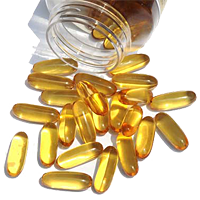Properties
[ad] Empty ad slot (#1)!
Fish oil has a highly complex nature and depends on a few factors. The fatty acid patterns of these oils vary widely depending on the fish species, the time of year, and the composition of the plankton. All of these factors influence the properties of this oil in regard to the technical applications and how edible it is. These oils contain ethers, waxes, fatty alcohols which also influence, to an extent, the properties of the oil.
During the time of processing, the condition of the fish affects the oil nutritionally, chemically, and physically. Fish that is of a poor quality can bring forth oil with high contents of sulphur and FFA also known as free fatty acids. The sulphur affects both the application and the economic value of the oil. There is sometimes an inactivating effect by sulphur compounds placed on the nickel catalyst which are used for hydrogenation. When this occurs the catalyst oftentimes has to be replaced. In order for desirable properties to be manufactured in oil, the following should take place:
- Before being delivered to a storage tank, the oil should be cooled and pumped in close to the bottom of the tank then taken from the top. The water and sludge should be drained often from the bottom in order to prevent a rise in the FFA during the storage period.
- The oil should be of the freshest quality.
